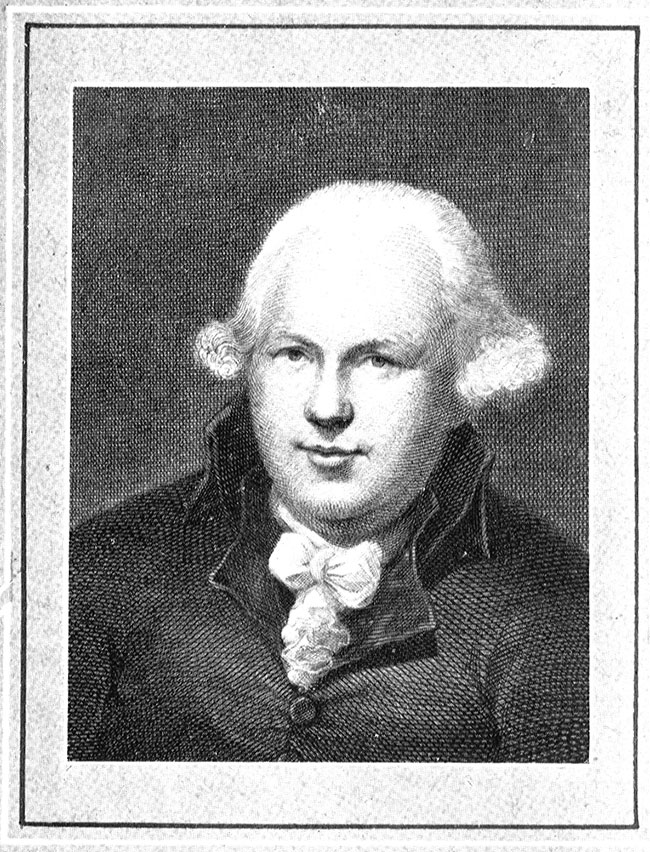ROBERT RAIKES MADE A TIME AND A PLACE FOR KIDS TO LEARN

[Above: Robert Raikes. W. J. Townsend, H. B. Workman, and George Eayrs, eds. A New History of Methodism, Vol 1. London: Hodder and Stoughton, 1909. public domain]
IMAGINE THIS: two hundred years ago, even great nations like Britain did not educate the majority of their children. One of the people who changed that was Robert Raikes, publisher of the Gloucester Journal. In a letter, he described the start of his world-changing work:
Some business leading me one morning into the suburbs of the city, where the lowest of the people ... reside, I was struck with concern at seeing a group of children, wretchedly ragged, at play in the street. I asked an inhabitant whether those children belonged to that part of the town, and lamented their misery and idleness. “Ah! Sir,” said the woman to whom I was speaking, “could you take a view of this part of the town on a Sunday, you would be shocked indeed, for then the street is filled with multitudes of these wretches, who, released on that day from employment, spend their time in noise and riot, playing at chuck [a throwing game], and cursing and swearing in a manner so horrid, as to convey to any serious mind an idea of hell rather than any other place.”
Raikes already used his influence and time to improve conditions in Gloucester’s prisons. Now he wondered if he could do something to help the children. As he considered this, the word “TRY” impressed itself on his mind. He talked it over with Rev. Thomas Stock. Stock had run a Sunday school in Ashbury, Berkshire. Raikes and the clergyman agreed on a plan to hire four women to teach the children on Sundays. The change for the better in the children was above their highest hopes. In 1783, Raikes published an article about the Gloucester Sunday schools in his newspaper.
His article drew attention all over Great Britain and people wrote with inquiries. A popular men’s magazine printed one of his replies. The idea was a hit. People had founded Sunday schools before, but Raikes was the first to promote the idea to the nation. Volunteers (many of them motivated by Christian faith) formed Sunday schools across Britain. Hundreds of thousands of children learned to read and to lead self-disciplined lives.
Organizers often went beyond mere book education. One man encouraged children to bring a penny every Sunday toward buying new clothes. He matched the amount for anyone who did. (A penny in 1800 was worth about 50¢ US in 2020.) The children responded eagerly. After a few weeks, many came dressed in new outfits. They had learned that it pays to save a little each week toward a worthwhile goal.
An anecdote shows Raikes’s way of handling children. A sullen girl was giving her mother fits. The mom complained that discipline was ineffective. After asking the mother’s permission, Raikes pleaded with the girl to seek forgiveness as a step toward changing course. The girl refused. “Well then,” said Raikes, “If you have no regard for yourself, I have much regard for you. You will be ruined and lost if you do not begin to be a good girl, and if you will not humble yourself, I must humble myself, and make a beginning for you.” He knelt before the mother and asked forgiveness. No sooner did the girl see him on his knees for her sake than her heart melted. She fell on her own knees and afterward was quite changed.
On the evening of this day 5 April, 1811, Raikes felt a heaviness in his chest. A physician came at once but could give no hope. Raikes died before the hour was up, seventy-five years old.
Raikes changed millions of lives through his willingness to try something new. He used the means available to him to tell the world of his success. That is why he wrote,
I can never pass by the spot where the word TRY came so powerfully into my mind, without lifting up my hands and heart to heaven, in gratitude to God, for having put such a thought into my heart.
—Dan Graves
----- ----- -----
For a deeper look at Raikes, read "Education: Classrooms in Hell" in Christian History #53, William Wilberforce and the Century of Reform






